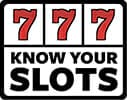It can be hard to wrap one’s head around complex math, especially things like statistics, and especially if a person is not the most math-focused or math-minded. So sometimes I like to root out videos that can help illustrate various topics in a different way than we’ve discussed here over time.
Math is leveraged heavily in the structure and design of slot machines. Math is also leveraged heavily in games of probability, such as Guess Who?, as you narrow down the various traits that the character your opponent has selected could be, and the way you select those traits could make you more or less likely to win over time.
But how does the game Guess Who? relate to slot machines? It may seem like a stretch, but this video from a few years back by Mark Rober can show how statistics and various outcomes, played out over a certain number of times, show how as a certain number of outcomes are completed, they can move closer to the expected percentage of wins/losses.
Effectively, the ability for one side to win or lose more often over another side more often, can over time set up a scenario where one player will win over the other a significant percentage of the time, enough that the winning player will have a consistent advantage.
How this relates to slots is the actual return to player amounts vs. the expected payback percentage over time. In the short term of a single game session, you could win nothing on a slot machine or you could handpay. That doesn’t change the long-term outlook of the game and how it’s designed.
Over hundreds of thousands of spins, the game will over time converge on its expected payback percentage, based on the payout setting a casino has selected for its casino floor. The casino is expected to win, more often than not, and over enough players and enough spins, it does just that.
There are times players believe games are configured to pay too poorly, or the game is “rigged,” but it’s not just the long term advantage, but the short term swings, that can ultimately lead to huge wins or disappointing losses, are all part of the journey that over the long term gets a game to its expected payback.








